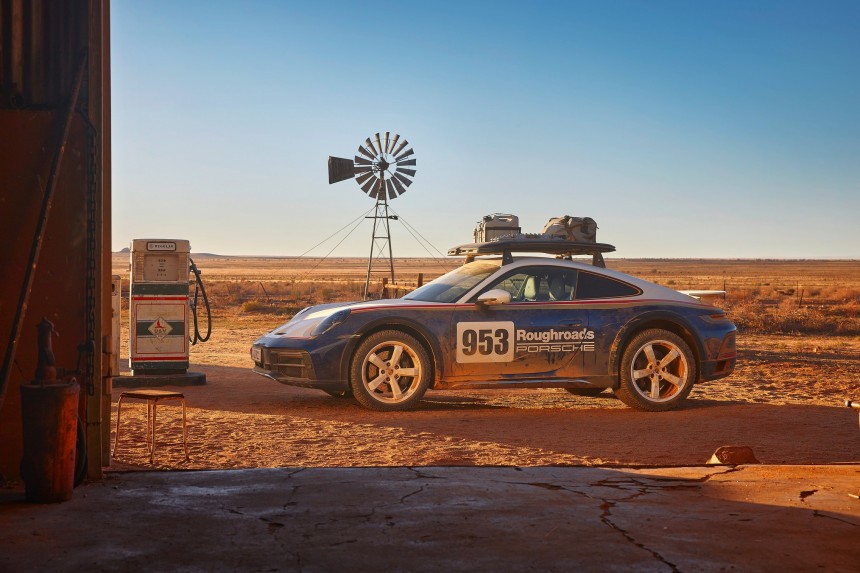Zuffenhausen’s favorite son has identified an issue affecting the 2021 through 2024 model year Porsche 911. As it happens, Neunelfer vehicles equipped with optional full bucket seats feature improperly calibrated airbag deployment logic. More specifically, the seat-mounted airbags may deploy unnecessarily in case of a crash.
As per the chronology of events filed by Porsche with the National Highway Traffic Safety Administration, the German automaker became aware of said issue as far back as October 2021. A racetrack incident led to a spleen injury as a result of seat-mounted airbag deployment, although Porsche didn’t investigate this incident. Fast forward to June 2023, and the German manufacturer was informed of yet another injury caused by said airbags.
The following month, Porsche learned about a third incident. The fourth occurred in August 2023. The subsequent investigation revealed that seat-mounted airbags meet all federal motor vehicle safety requirements applicable in the US market, although the airbag control unit could use better deployment logic. Due to the unreasonable risk to safety posed by the improperly calibrated seat-mounted airbag deployment logic, Porsche Cars North America decided to recall 2,923 vehicles.
As mentioned earlier, we’re dealing with 2021 through 2024 models equipped with optional full bucket seats. Affected Neunelfers come in a variety of versions, beginning with the Carrera T, Carrera GTS, and Carrera 4 GTS. The remainder comprises the Turbo, Turbo S, GT3, GT3 Touring, GT3 RS, and the Dakar special edition.
Supplied by Continental Automotive Technologies of Regensburg, the airbag control unit will be reprogrammed by authorized retailers at no cost whatsoever to affected owners. All customers will be notified via first-class mail no later than December 22. According to Porsche, updated logic rolled out in production during calendar week 41, which stands for October 9, 2023 to October 15, 2023.
The document attached below lists production dates ranging between March 15, 2021 and September 27, 2023 for the recalled vehicles. In the meantime, owners can easily determine whether their boxer-engined sports cars are recalled or not by running the VIN on the NHTSA’s website. The service is free of charge.
Considering how confusing the 911 lineup may appear to casual enthusiasts, we should look into every recalled version to clear things up. First and foremost, the Carrera T slots between the entry-level Carrera and slightly punchier Carrera S. The Carrera GTS is rear-wheel drive, whereas the 4 in Carrera 4 GTS stands for AWD. This all-wheel-drive system boasts a water-cooled clutch and differential unit. The Carrera 4 GTS can be had with either a manual transmission or Porsche’s trademark PDK.
The AWD-only Turbo and Turbo S are the quickest 911s in production today, with Porsche claiming 2.7 and 2.6 seconds to 60 miles per hour (97 kilometers per hour). The GT3 is the only regular production 911 with a naturally-aspirated engine, which makes a little more power in the RS version. The RS-spec engine is also shared with the S/T special edition, which costs a staggering $290,000.
Speaking of ludicrous pricing, the Dakar is a pricey cookie as well. For the US market, prospective customers are charged $222,000 plus destination charge. Add some options and a markup to the mix, and you’re looking at $300,000 for the high-riding special edition. Only 2,500 units are planned, whereas the S/T will number 1,963 copies.
The following month, Porsche learned about a third incident. The fourth occurred in August 2023. The subsequent investigation revealed that seat-mounted airbags meet all federal motor vehicle safety requirements applicable in the US market, although the airbag control unit could use better deployment logic. Due to the unreasonable risk to safety posed by the improperly calibrated seat-mounted airbag deployment logic, Porsche Cars North America decided to recall 2,923 vehicles.
As mentioned earlier, we’re dealing with 2021 through 2024 models equipped with optional full bucket seats. Affected Neunelfers come in a variety of versions, beginning with the Carrera T, Carrera GTS, and Carrera 4 GTS. The remainder comprises the Turbo, Turbo S, GT3, GT3 Touring, GT3 RS, and the Dakar special edition.
Supplied by Continental Automotive Technologies of Regensburg, the airbag control unit will be reprogrammed by authorized retailers at no cost whatsoever to affected owners. All customers will be notified via first-class mail no later than December 22. According to Porsche, updated logic rolled out in production during calendar week 41, which stands for October 9, 2023 to October 15, 2023.
Considering how confusing the 911 lineup may appear to casual enthusiasts, we should look into every recalled version to clear things up. First and foremost, the Carrera T slots between the entry-level Carrera and slightly punchier Carrera S. The Carrera GTS is rear-wheel drive, whereas the 4 in Carrera 4 GTS stands for AWD. This all-wheel-drive system boasts a water-cooled clutch and differential unit. The Carrera 4 GTS can be had with either a manual transmission or Porsche’s trademark PDK.
The AWD-only Turbo and Turbo S are the quickest 911s in production today, with Porsche claiming 2.7 and 2.6 seconds to 60 miles per hour (97 kilometers per hour). The GT3 is the only regular production 911 with a naturally-aspirated engine, which makes a little more power in the RS version. The RS-spec engine is also shared with the S/T special edition, which costs a staggering $290,000.
Speaking of ludicrous pricing, the Dakar is a pricey cookie as well. For the US market, prospective customers are charged $222,000 plus destination charge. Add some options and a markup to the mix, and you’re looking at $300,000 for the high-riding special edition. Only 2,500 units are planned, whereas the S/T will number 1,963 copies.






























